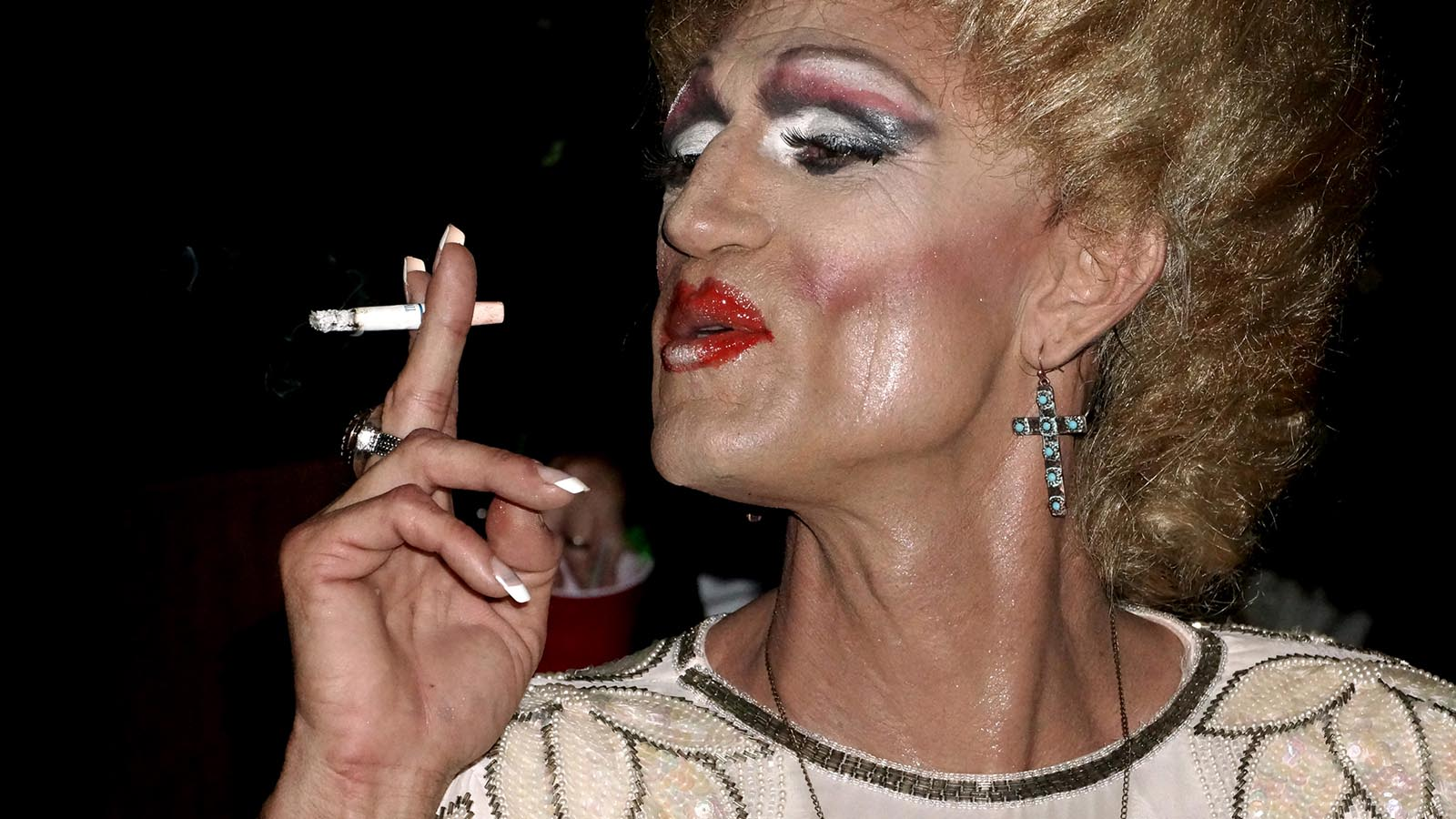
June 28 will mark the fiftieth anniversary of the Stonewall riots, making this year’s Pride Month especially loud and proud. Frameline, billed as “the world's longest-running and largest showcase of queer cinema,” opens today in San Francisco and will present dozens of U.S. and world premieres through June 30. There are queer film festivals either on now or about to open in Kansas City,Lima,Bristol,Budapest,Milan, and Nice, and the lineup is set for Outfest, running July 18 through 28 in Los Angeles.
In New York, a new restoration of Jennie Livingston’s Paris Is Burning, which captures the city’s African American and Latinx Harlem drag ball scene in the 1980s, is playing at Film Forum through June 27, and the very next day, Frank Simon’s The Queen (1968), also newly restored, opens at the IFC Center. In The Queen, our guide to the 1967 Miss All-America Camp Beauty Pageant is narrator Jack Doroshow, a.k.a. Flawless Sabrina, and one of the judges is none other than Andy Warhol. “Experiential rather than agenda-driven,” writes Michael Koresky for Film Comment, “The Queen is barely known outside of queer circles; outside of the odd cinematheque retrospective, the film is rarely mentioned alongside the groundbreaking 1960s vérité docs such as those by the Maysles or D. A. Pennebaker, despite the fact that its revelations are legion, its access rare, its perspective tender, its shooting and editing cut-to-the-heart sharp.”
Starting tomorrow, New York will also see two series celebrating World Pride, Grit and Glitter: Before and After Stonewall, running through July 6 at the Museum of the Moving Image, and Queer Kino, a selection of German films from the late 1970s and early ’80s playing at the Quad Cinema through June 27. MoMI’s series has been programmed by filmmakers Donal Mosher and Michael Palmieri, whose The Gospel of Eureka (2018), screening at the museum on Saturday, is a documentary portrait of Eureka Springs, Arkansas, home to just over two thousand people; The Great Passion Play, depicting the persecution, Crucifixion, and resurrection of Jesus; and Eureka Live Underground, a dance and drag bar owned, as Keith Uhlich points out in the Hollywood Reporter, by Lee Keating and Walter Burrell, “who are both a devoted gay couple (the first in the area to be married by a Baptist preacher) and devout Christians. That’s just one contradiction in a movie provocatively and poetically rife with them.” Back in Film Comment, Eric Hynes writes that “each side of this diptych is viewed with equanimity: archly, hilariously, and lovingly.”
Introducing their program for MoMI—which includes work by Jack Smith, Tony Richardson, Kon Ichikawa, Shirley Clarke, Pier Paolo Pasolini, John Waters, Apichatpong Weerasethakul, and Stephen Frears—Palmieri writes that “we’re interested in the films and filmmakers whose ideas reflected the cultural shifts bubbling under the surface that led to Stonewall, as well as the effect it had on the cinema and culture that followed.” And for Mosher, their selections “shine with a disruptive, beacon-like power.”
Queer Kino has been programmed by Wieland Speck, a filmmaker who ran the Panorama section of the Berlin Film Festival from 1992 to 2017 and cofounded the Teddy Award, presented each year at the Berlinale to new LGBT films. Speck has selected two films by Rainer Werner Fassbinder, Fox and His Friends (1975) and Querelle (1982), as well as Ulrike Ottinger’s Madame X: An Absolute Ruler (1977) and works by filmmakers not as well known outside of Germany, such as Uwe Frießner, Elfi Mikesch and Monica Treut, Frank Ripploh, and Heiner Carow. Speck will also be presenting his own 1985 directorial debut, Westler, a love story about two men on either side of the Berlin Wall. “Westler may feel dated,” writes Gary M. Kramer in Gay City News, “but it provides a valuable glimpse into the queer bars and drag shows the characters attend that provide them with a sense of community.” As for Querelle, an adaptation of Jean Genet’s 1947 novel, “Fassbinder’s final film stands erect as a posthumous monument to the principals and peccadillos that captivated both authors,” writes Caroline Golum at Screen Slate.
Meantime, Park Circus is marking the twenty-fifth anniversary of writer-director Stephan Elliott’s The Adventures of Priscilla, Queen of the Desert—which the Guardian’s Peter Bradshaw calls a “funny, smart, and intensely lovable road-trip comedy”—by sending it back into theaters all across Europe.
For news and items of interest throughout the day, every day, follow @CriterionDaily.



